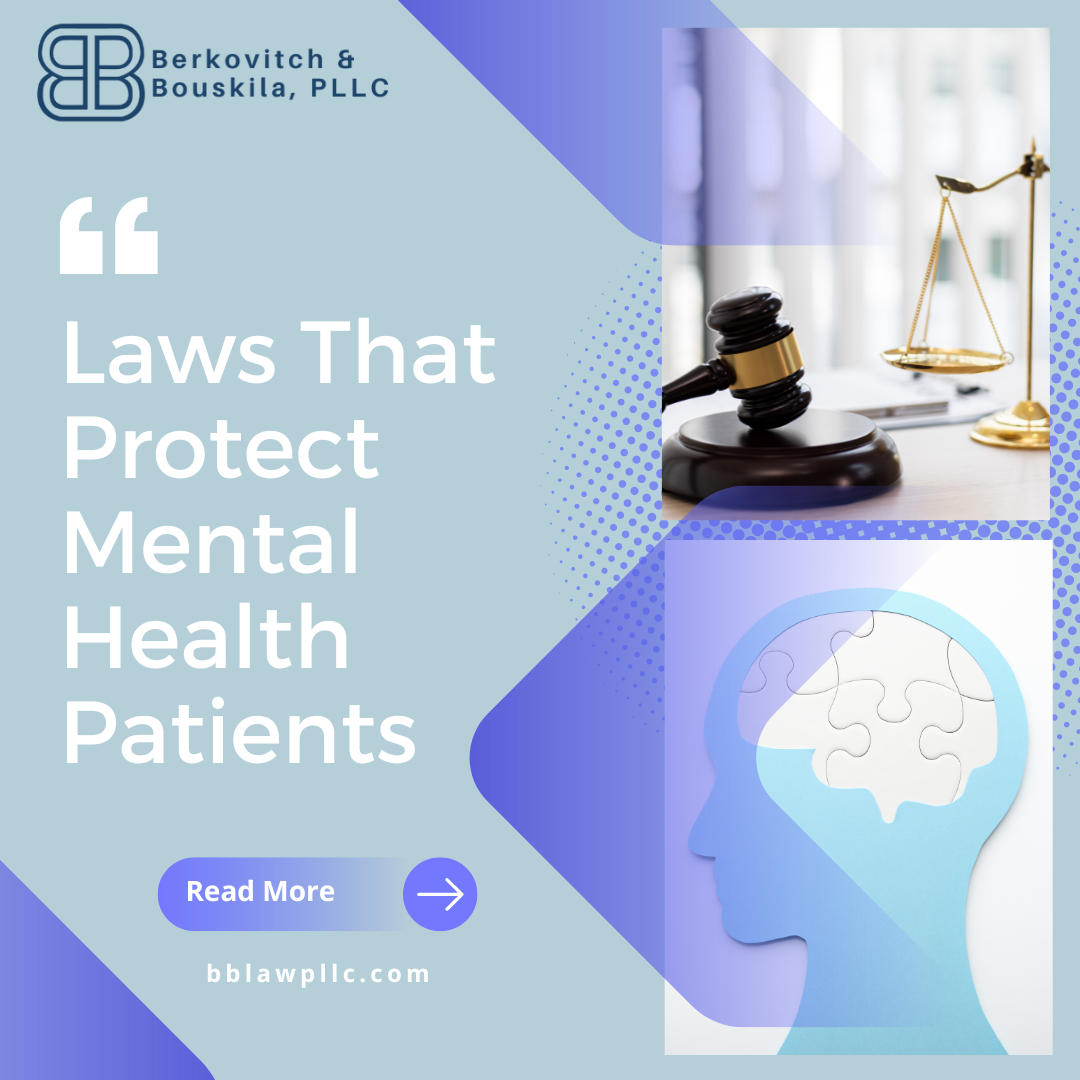There are many laws that protect mental health patients. Mental health patients have many rights that other people don’t have. For example, if you are in the hospital for a physical problem, doctors can treat you without your consent. But if you’re in the hospital with a mental illness, they need your permission before using any treatment.
This means that if you are being treated against your will because of a physical injury, you can ask for an attorney and get out of there until things are sorted out!
1. You Cannot Be Denied Treatment Because Of Your Mental Illness.
- You cannot be denied treatment for a mental illness.
- The law requires that you receive the same level of care as someone who needs physical care. This means that if your doctor refuses to treat you because of your mental illness, they may be violating the law and could face legal action from their state’s department of health or other agencies responsible for protecting patient rights.
- Your rights are protected even if it’s not life-threatening, like in this case:
A woman named Trina was diagnosed with bipolar disorder when she was 17 years old and spent most of her childhood in foster homes due to her mother’s struggles with addiction issues; however, she eventually ended up living with her grandmother who had no experience taking care of people with mental illnesses so Trina received no treatment until she turned 21 years old when she moved out on her own because she felt ready enough emotionally (although still unsure about making such big decisions).
When Trina became pregnant at 24 years old after dating someone new for several months prior without telling him about any previous diagnoses yet knowing how important it would be going forward into parenthood together–he decided not only would he not stay involved but also threatened legal action based upon being lied too earlier when asked directly if there were any conditions present before agreeing together under oath before God Himself.”
2. You cannot be coerced into receiving treatment for a mental illness you don’t have, or forced to take medication if you don’t want it.
- You cannot be coerced into receiving treatment for a mental illness you don’t have, or forced to take medication if you don’t want it.
The laws that protect your right to refuse treatment are designed to ensure that you do not have to undergo any treatment against your will.
This means that no one can force you into getting psychiatric care if they feel like it’s necessary for their own well-being, or even just because someone else thinks that it would be good for them (like their boss).
You also have the right not only not take medication prescribed by doctors if it goes against what you want but also refuse medical examinations and tests when asked by someone else who has authority over me such as my employer or school principal
3. You have the right to refuse treatment and care that you do not consent to.
You have the right to refuse treatment and care that you do not consent to. This includes:
- Treatment for mental health conditions, such as medication or psychotherapy (a type of talk therapy)
- Hospitalization in a psychiatric hospital or similar facility
If you are being treated against your will, it may be helpful for you to know that there are laws in place protecting your right to refuse medical treatment and other kinds of care if you don’t want them.
4. The Mental Health Parity and Addiction Equity Act (MHPAEA)
MHPAEA requires that insurance companies offer the same benefits for mental health and substance use disorder services as they do for medical and surgical benefits.
MHPAEA also requires that insurance companies cover mental health and substance use disorder services at the same level of coverage that they offer for medical and surgical benefits.
This means that you can’t be charged more just because you need treatment for a mental illness or addiction problem.
5. HIPAA Privacy Rule
The HIPAA Privacy Rule is a federal law that protects the privacy of health information. The rule was created by the U.S. Department of Health and Human Services (HHS) and applies to all forms of protected health information (PHI), including electronic, paper and oral.
It also applies to any entity that transmits or stores such as hospitals, clinics, doctors’ offices and insurance companies.
The HIPAA Security Rule establishes national standards for physical security measures; electronic data transmission; access controls to electronic data; workforce training on preventing unauthorized accesses or disclosures; identification/authentication methods for users accessing electronic systems containing PHI; incident reporting requirements when breaches occur involving more than 500 individuals at one time or more than 500 individuals over a period not exceeding 60 days in total during any 12 month period following discovery
6. Protection and Advocacy for Mentally Ill Individuals Act (PAIMI)
- The Protection and Advocacy for Mentally Ill Individuals Act (PAIMI) is a federal law that protects the rights of people with mental illness. It was passed in 1990, and requires state protection and advocacy agencies to monitor and investigate complaints of abuse and neglect.
- States are required to have a Protection & Advocacy system if they receive federal money for mental health services or substance abuse treatment programs.
7. Developmental Disabilities Assistance and Bill of Rights Act – ADA Amendments Act of 2008
The Developmental Disabilities Assistance and Bill of Rights Act – ADA Amendments Act of 2008 is a federal law that protects people with developmental disabilities.
This includes those who have intellectual or mental impairments, such as autism or Down syndrome.
The law defines developmental disability as a condition that affects one or more major life activities, such as learning, thinking and communicating.
It also includes conditions that make it hard for someone to do basic things like bathe themselves or shop for groceries on their own. The exact definition varies depending on the person’s age and other factors.
8. There are many laws that protect people with mental illnesses from discrimination.
- Mental illness is not a crime.
- Mental illness is not contagious.
- Mental illness is not a moral weakness, character flaw or choice; it’s an illness like any other that can be treated with medications, therapy and support from family and friends if you want to get better (which most people do).
- You are not alone in your struggle with mental illness – there are laws to protect you from discrimination because of it!
Conclusion
We hope that this article has given you some insight into the many laws that protect people with mental illnesses from discrimination.





Leave A Comment